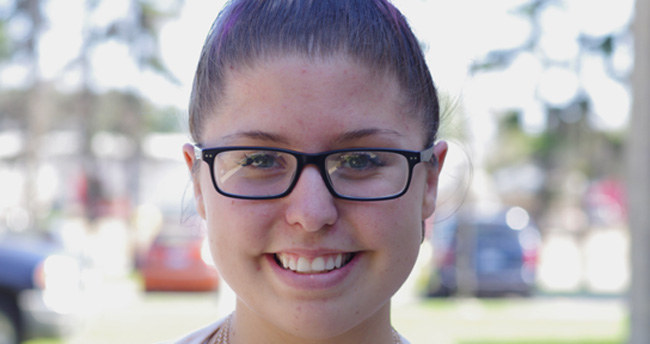First time Anishinaabe voters looking forward to Oct. 19

By Rick Garrick
Pic River’s Khanena Lee Nowegejick is looking forward to voting for the first time in this years Oct. 19 federal election.
“I was old enough to vote a long time ago but didn’t get to it,” Nowegejick says. “Now I am finally interested in voting and making a change for the system.”
Nowegejick does not agree with what has been happening in the federal government since the last election in 2011. She is not sure who she will vote for in the upcoming election, but she has been hearing out the views of the different candidates in her Thunder Bay-Superior North riding.
“If you want change then you need to take some concrete action,” Nowegejick says. “By not voting, then there is not going to be any change.”
Nowegejick says the process of getting the proper identification to vote in this year’s federal election has been difficult.
“Getting ID is so hard sometimes,” Nowegejick says. “I never knew you had to have ID up until now.”
Voters are no longer able to use vouching or the voter information card to vote under the Fair Elections Act, which was introduced to Parliament in Feb. 2014 and received Royal Assent in June 2014.
The new regulations call for voters to prove their identity and address, either by showing a driver’s licence, a provincial or territorial card or any other government card with photo, name and current address; showing two pieces of identification provided one has the voter’s current address; or taking an oath. The two pieces of identification include a wide variety of forms, such as a health card, Canadian passport, birth certificate, Indian status card, band membership card, Metis card, credit card, debit card, firearms licence, utility bill or a letter of confirmation of residence from a First Nation band or reserve. In order to take an oath to vote, voters also need show two pieces of identification and have someone who knows them to attest to their current address.
“It’s making it much harder to vote — there’s not as much encouragement this time or advertising to get people to go out and vote,” says Samantha Crowe, a Red Rock Indian Band citizen who voted for the first time in the 2011 federal election. “As every Canadian citizen, it is our duty to be voting, whether it seems impossible or not. It’s something we should all take pride in.”
Crowe says first-time voters can be overwhelmed by the information available about the different federal parties and the candidates in their riding. “People don’t know what riding they are in or who their local candidates are,” Crowe says. “So just looking up that information can be really important.” Crowe has been looking up the different candidates in her Thunder Bay-Rainy River riding to see what their positions are on different issues. “Sometimes it is not just about the party but it is also about the person you are voting for,” Crowe says. “I find that in northern Ontario we get forgotten a lot. We may not have as many people or as many resources in our area, so it is really crucial to have someone who is actually going to stick up for our area and really talk about us and make sure that our issues and our needs are being addressed.”
The federal election is on the agenda at this year’s Maadaadizi post-secondary Aboriginal student orientation, scheduled for Sept. 11 at the Thunder Bay Boys and Girls Club, 270 Windsor St., from noon to 5 p.m.
“Invitations were extended to Elections Canada and the political candidates to have booths at the event, to help students learn about the voting process and meet the candidates,” says Darby Starratt, chair of the Maadaadizi Planning Committee and Aboriginal student navigator at Confederation College. “The intent is to encourage students to vote and to help them make informed decisions.”
Regional Chief Isadore Day, the Maadaadizi keynote speaker, says First Nations people have the right to vote and a right based on legitimate reasons as sovereign indigenous people to choose not to vote.
“Many First Nation people are considering a vote in the 2015 federal election because the living conditions of our people have dramatically worsened under the current Conservative Party of Canada,” Day says. “If youth decide to vote in this election, I support that as a matter of choice. My suggestion would be for youth to understand the issues and be prepared to defend their positions and beliefs about what is right for First Nations and for this country. Voting intelligently is a good rule of thumb.”
Day says First Nations people can participate in the election without voting.
“A person can know the issues and still educate voters and the political parties running for office in what the issues are,” Day says. “As a non-voter, one still has a right to voice their opinion and state why they decide not to vote.”


